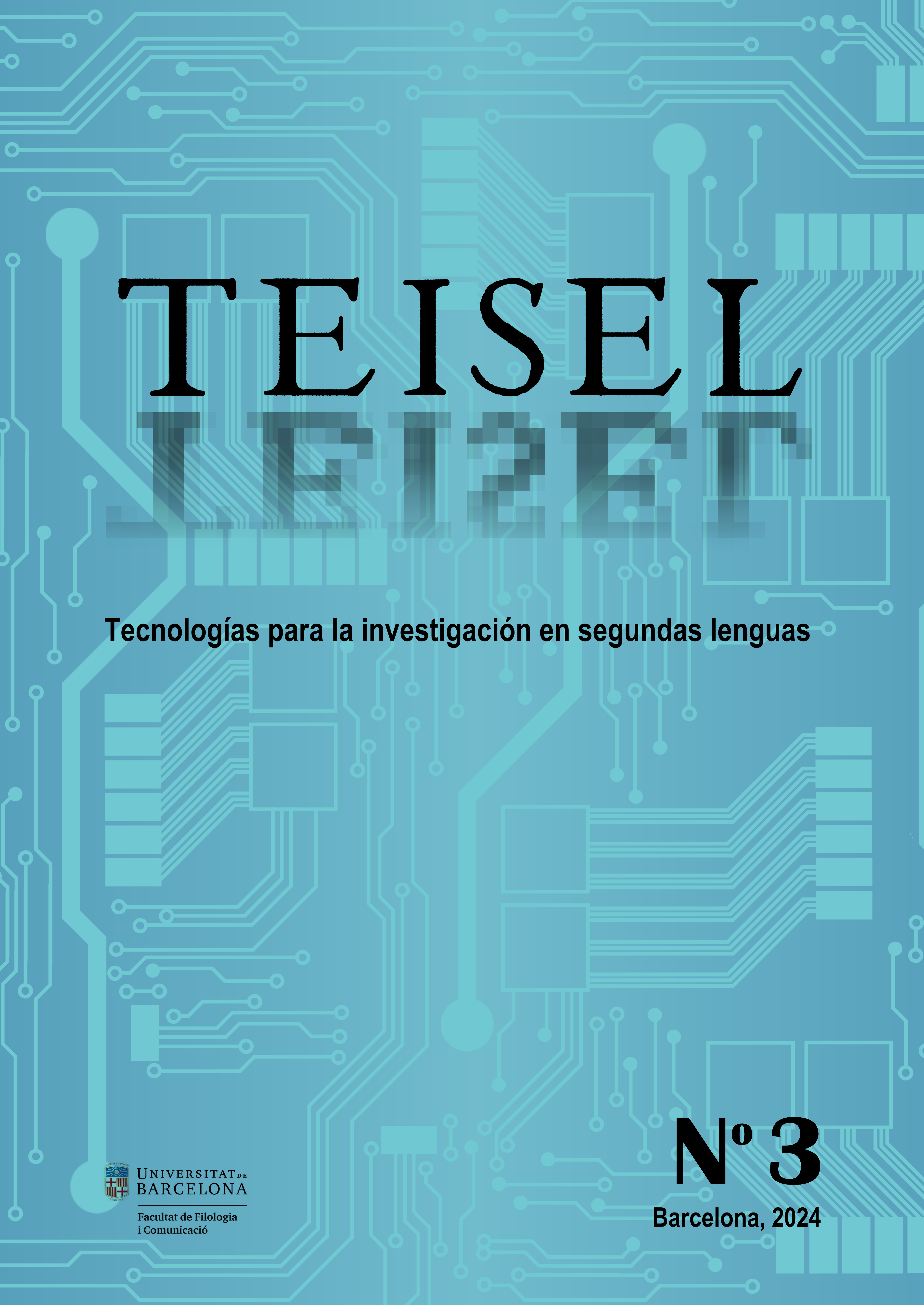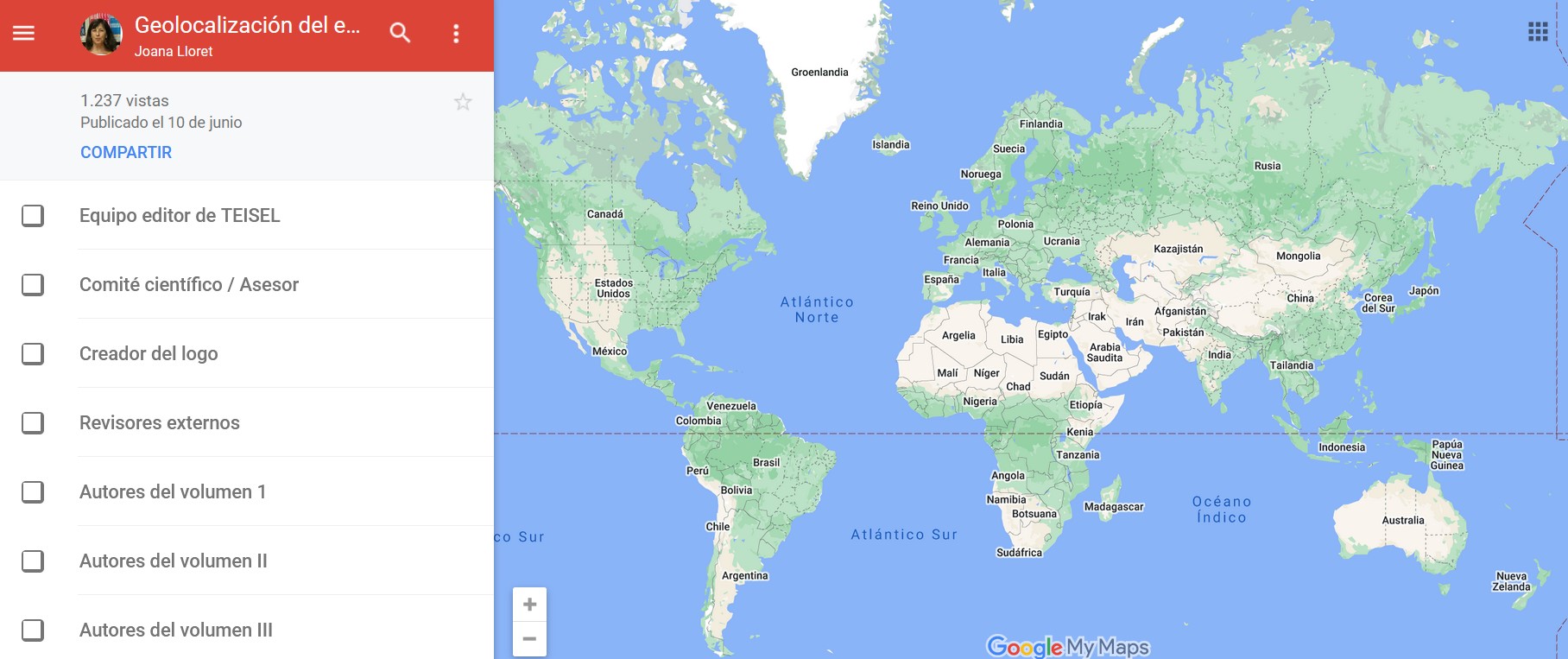Automating task design: bridging the gap between second language research and L2 instruction
DOI:
https://doi.org/10.1344/teisel.v3.45855Palavras-chave:
educational technology, computational linguistics, task-based language teaching, second language task designResumo
The present study addresses the issue of the transfer from second language acquisition (SLA) research to second and foreign language (L2) instruction, particularly within the context of Task-Based Language Teaching (TBLT). The main goal of this article is to show how technology, particularly the web-based tool taskGen (https://taskgen.eu), which primarily serves to create teaching materials, also functions as a mediator for transfer and provides valuable information on teaching practices, teachers' needs, pedagogical strategies, and L2 task design. This article is organised as follows. Firstly, a web-based tool that assists and trains teachers in L2 task design is presented, along with the instantiation and integration of natural language processing (NLP) resources in the tool; later, we show how quantitative information obtained from the massive use of the tool through data analytics can be combined with qualitative methods such as interviews, observations, think aloud protocols, questionnaires, case studies, and transcripts to generate research. Automatic (quantitative) data collection gathers information of the teaching contexts, task aims, task flow structures, focus on form options, and the access and time on help files. Not only does the collected information feed back to the tool, but it also contributes to understanding teachers' design choices and patterns, and to exploring the intersection between SLA and TBLT theory and task design practises. Qualitative analysis is being conducted and oriented toward teachers’ experiences during task design. Finally, we present the future lines of research that we anticipate will be carried out with the further use and development of taskGen.
Downloads
Downloads
Publicado
Edição
Seção
Licença
Copyright (c) 2024 Joan Castellví, Roger Gilabert Guerrero, Elisabet Comelles Pujadas

Este trabalho está licenciado sob uma licença Creative Commons Attribution 4.0 International License.
Com licença Creative Commons v. 4.0





